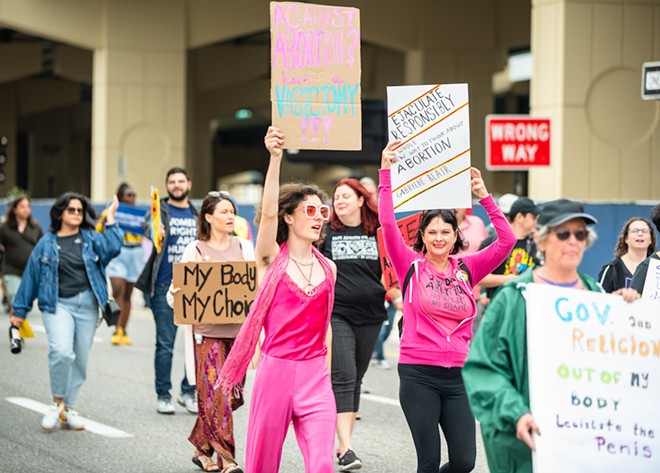Just three weeks after it was filed, the Florida bill banning abortion after six weeks is scheduled to be heard by the full state Senate Thursday.
The extreme bill is expected to pass, stripping Florida of its status as a refuge state for reproductive healthcare in the Southern United States.
The bill, SB 300, would make abortion illegal after six weeks of pregnancy, with exceptions for rape and incest — but only up until 15 weeks and with provided “evidence” like a police report or medical report. That is, if the rape or incest has been reported.
The House version has been approved by the Healthcare Regulation Subcommittee and is set to move to the Health & Human Services Committee this week.
A late period is not considered a missed period until after six weeks without bleeding, according to Healthline. That would be too late for an abortion in Florida under this proposed law.
In a Wednesday conference at the state capitol, reproductive rights advocates and organizations called on Sen. Kathleen Passidomo to fight the fast-tracked legislation threatening abortion access.
“This is not public policy. This is not public health. This is an attack on people’s lives,” said Amy Weintraub, Progress Florida’s Reproductive Freedom Program Director.
The Republican-controlled legislature and Gov. Ron DeSantis approved Florida’s 15-week abortion ban last year, months before the U.S. Supreme Court overturned Roe v. Wade in a June ruling.
Many are citing the governor’s backing of stringent abortion legislation as an effort to appeal to Republican voters ahead of a budding presidential run.
The six-week ban is also contingent on a constitutional challenge to Florida’s current law banning abortion at 15 weeks filed by seven abortion clinics and a physician earlier this year.
The case challenges whether the 15-week limit violates a privacy clause in the Florida Constitution that has helped protect abortion rights for more than 30 years.
Whether the Florida Supreme Court upholds the 15-week law will determine the fate of the Senate bill and its matching House measure, HB 7. It is speculated the court won’t rule on the challenge until after the legislative session is over.
With Florida’s Republican supermajority, the bill is likely to pass and become law.
Florida would join Georgia as the only other state with a six-week ban. It would also become the only state with a six-week ban and a mandatory 24-hour waiting period between provider appointments.
When seeking an abortion, Floridians are required to wait 24 hours between two separate appointments before getting an abortion. The law requiring the statewide waiting period was passed in 2015, but only took effect last April after seven years of legal battles.

